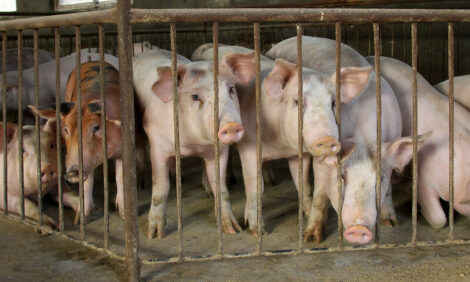



Scaling precision livestock technologies
Rob Kelly, SVP & Commercial Leader at MSD Animal Health on the importance of wearable technologies and scaling up precision livestock products.MSD Animal Health has put a lot of focus into wearable technologies for livestock as it continues to improve animal health and welfare. Can you let us know about your latest investments and results?
Europeans want to know the story behind the food on their plates. A recent survey of people in Germany, France, Italy, Spain, and Czechia found that nearly eight in 10 consumers have scanned a QR code on a food or drink product to learn more. Nine of 10 favour regulations requiring accuracy in digital product information. 83% of Europeans support labels for animal products that meet welfare criteria on the farm and during transport. But labeling doesn’t have to be a hassle, thanks to new technology solutions that track livestock products from the farm to the slaughterhouse to the supermarket shelf.
It is our unique combination of biopharmaceutical, technology and data solutions that is fundamentally changing the livestock industry. Our livestock technology portfolio including an extensive suite of digitally connected identification, traceability and monitoring products expresses our shared strategic vision for intelligence and data.
E-identification tools like collars and ear-tags provide reliable information about each animal throughout the process. Cloud-based swine traceability technologies, for instance, let farmers track their pigs’ genetics, vaccination status, weight, and age – among other biological factors — in real time. Similar systems exist for cows and poultry.
With the latest advancements in technology solutions, there’s reason to believe that the farms of the future will be more efficient, sustainable, and productive than ever imagined. Those advances also make for healthier animals living in more humane conditions.
For you, what is the potential in creating precision livestock products that can scale globally?
Ten billion. That’s what we can expect the world population to reach ten million by 2050, according to the United Nations. That’s around 2 billion more people than the number of people alive today. It’s also about 2 billion more mouths to feed, which means the global agriculture sector must become much more productive in order to meet the expected 35% to 56% increase in global food demand over 2010 levels. Yet the imperative to produce more food comes with the urgent need to protect our environment. These are lofty goals. But they are attainable, especially with help from the many emerging animal health technologies solutions that are helping farmers produce more with less. For myriad reasons – including food security, the challenge of reducing the environmental impact of farming, and the need to ensure the welfare of animals – the blistering rate of innovation in the animal health sector is fantastic news for our farmers.
At the summit, you will deliver a 10 minute presentation on ‘Beyond Borders: Navigating the Challenges and Opportunities of Global Expansion.’ What are you looking forward to discussing?
As the globe’s population grows and people increasingly desire more meat in their diets, the agricultural industry must evolve. The Organisation for Economic Cooperation and Development estimates that global meat consumption will increase 14% by 2030. Farmers will need to produce more meat to keep pace with that demand. Livestock monitoring technologies can help farmers keep tabs on the health of their herds and identify potential diseases before they have a chance to spread to other animals. In this general context I would like to show what are the inherent complexities in creating precision livestock products that can scale globally. Furthermore, I would like to address the risks and common pitfalls to geo-expansion of technology solution products and what a possible framework for thinking about geo-expansion including resourcing, timing, and go to market could look like.
These technology solutions can’t replace proven tools like vaccines – the cornerstone of preventive health in livestock farming – and routine veterinary care. They can give farmers a leg up as they race to meet consumers’ increasing demand for protein while building a more sustainable future for the farmers and the communities in which they live.
Join the MSD Animal Health team at Animal AgTech and hear more from Rob Kelly delivering a presentation on ‘Beyond Borders: Navigating the Challenges and Opportunities of Global Expansion’ on October 10 at 10am CEST. On October 11, Rob will also host a roundtable discussion on ‘Beyond Borders: Navigating the Challenges and Opportunities of Global Expansion’ at 12.10pm CEST.







